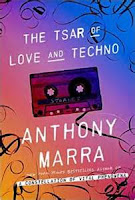"I always call risk the likelihood of actually falling off. The consequence is what will happen if you do."
Alone on the Wall
Alex Honnold
 When Alex Honnold arrived on the climbing scene in 2008, he completely changed the game by free soloing big walls with no support (climbing really big rocks with no equipment, no ropes, and no partner). Not only were these tall climbs, they were difficult. The sheer physical strength and determination to climb these walls is immense, having the mental capacity to do it with no back up plan is even greater. His innovations, however, have not come without judgement. Climbing is already a dangerous sport. The removal of the back up safety precautions has led people to question Alex's choices, and implies that, at best, he has not fully thought his decision through or, at worst, that he is reckless. These accusations are addressed in the book Alone on the Wall.
When Alex Honnold arrived on the climbing scene in 2008, he completely changed the game by free soloing big walls with no support (climbing really big rocks with no equipment, no ropes, and no partner). Not only were these tall climbs, they were difficult. The sheer physical strength and determination to climb these walls is immense, having the mental capacity to do it with no back up plan is even greater. His innovations, however, have not come without judgement. Climbing is already a dangerous sport. The removal of the back up safety precautions has led people to question Alex's choices, and implies that, at best, he has not fully thought his decision through or, at worst, that he is reckless. These accusations are addressed in the book Alone on the Wall.
Alone on the Wall is coauthored with David Roberts, and it tells the story of Alex Honnold's life and climbing career. It jumps back and forth between the two authors, with Roberts tackling the more journalistic side of it, and Honnold offering personal insights into the events. This format makes the book feel more like an interview then a collaborative piece of writing. The two different voices are clearly heard, and while the language has a lot of jargon (it brought to mind I Hate Climbers, which is a great read) but definitions are given and it is adapted to a more general audience. The transition between the two authors gets a bit awkward at times.
The story itself is extremely interesting. It traces Alex's adventures across the globe, he explains several of his climbs in depth, and explores how he has reacted to the fame he has received, including the roller coaster of sponsorship (in 2014 Clifbar surprised the world by dropping the sponsorship of many of their climbing athletes). He also speaks of his experiences with the deaths of those in the climbing community.
 His response to the allegations that he is either reckless or thoughtless in his climbing style is wonderful. He explains that he is one of the best climbers, with a large amount of experience, and that he never free solo's anything he fells he can't achieve. He weighs the risks, and if they are too high, he doesn't make the climb. Its a question that comes up often in extreme sports. It was asked when Shane McConkey died, and when Dean Potter died. Is it worth the risk? Its one that everyone needs to answer for themselves. For some, Kayaking class III water is to risky, for others, its a walk in the park. There is always added danger when pushing the envelope, when attempting to do something that no one else has done before. That is why it is so exciting when they succeed.
His response to the allegations that he is either reckless or thoughtless in his climbing style is wonderful. He explains that he is one of the best climbers, with a large amount of experience, and that he never free solo's anything he fells he can't achieve. He weighs the risks, and if they are too high, he doesn't make the climb. Its a question that comes up often in extreme sports. It was asked when Shane McConkey died, and when Dean Potter died. Is it worth the risk? Its one that everyone needs to answer for themselves. For some, Kayaking class III water is to risky, for others, its a walk in the park. There is always added danger when pushing the envelope, when attempting to do something that no one else has done before. That is why it is so exciting when they succeed.
This was an extremely interesting book. The writing wasn't great, but I feel like that is to be expected from someone who doesn't need to use that skill very often. Honnolds climbing and experiences more than make up for it, and I was massively entertained. This book made me want to go climbing.









